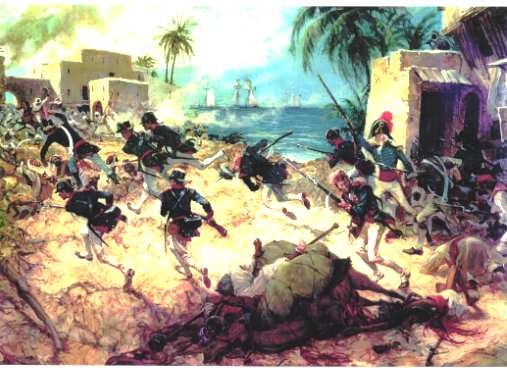Ok, here is one idea for battling these pirates. Set up some Q Ships off the coast of Somalia, with the hopes of drawing out some pirates, and either nab them or kill them. You make the ship look juicy enough, and these pirates will go after it. The Navy could just lease a few different boats, and cycle them through those areas, all with the intent of drawing out these guys. We used this tactic back in the day, until the U boat commanders started catching on.
My thoughts on it, is that the Navy could use the concept by leasing boats from the shipping industry to do it. If a boat gets shot up a little, or an RPG hits the big things, the Navy could totally repair the boat, as per the lease agreement. The shipping company could also have some kind of incentive to lease out to the Navy for putting up a boat, like some kind of insurance discount, tax credit, or just pay really well for the thing. Even the little yachts out there could be used, and the imagination is the only limit. The point being, is that boat should look like a really juicy target for the pirates, and then strike when they get close.
Or as a business venture, a Private Naval Company could offer their services for building a Q Ship. They could buy boats, modify them, paint them up a little based on the customer preference, and then hand them off to the Navy. I don’t think the Navy would want a PNC to do it all, but their is a precedent for it in a way, with the Q Ships during the WW 1 and 2 and with privateers. I am sure privateers back in the early days did all sorts of sneaky things to capture their prey, and using a Q Ship was probably one of them (or whatever they called it back then) Bring on the Q Ships! –Matt
——————————————————————
The USS Anacapa
Q-ship
Q-ships, also known as Q-boats, Decoy Vessels, Special Service Ships or Mystery Ships, were heavily armed merchant ships with concealed weaponry, designed to lure submarines into making surface attacks. This gave Q-ships the chance to open fire and sink them. The basic ethos of every Q-ship was to be a wolf in sheep’s clothing.
They were used by the British Royal Navy (RN) during World War I and by both the RN and the United States Navy during the Second World War (1939–1945), as a countermeasure against German U-boats and Japanese submarines.
In the First Battle of the Atlantic, by 1915, Britain was in desperate need of a countermeasure against the U-boats that were strangling her sea-lanes. Convoys, which had proven effective in earlier times (and would again prove effective during World War II), were rejected by the resource-strapped Admiralty and the independent captains. The depth charges of the time were very primitive, and thus the only method of sinking a submarine was by gunfire or by ramming while on the surface. The problem was luring the U-boat to the surface.
One solution to this problem was the creation of the Q-ship, one of the most closely-guarded secrets of the war. Their codename referred to the vessels’ home port, Queenstown, in Ireland[1]. These would be known to the Germans as a U-Boot-Falle (“U-boat trap”). The Q-ship would pose as an easy target for the U-boat but in fact carry hidden armament. A typical Q-ship would be an old-looking tramp steamer calmly sailing alone near an area where a U-boat was reported to be operating. By posing as a suitable target for the use of the U-boat’s deck gun, the Q-ship would encourage the U-boat captain to bring his vessel to the surface rather than use one of his expensive torpedoes, which were in short supply. The cargoes of the Q-ships would be wooden caskets and wood (e.g., balsa or cork) so even if torpedoed they would stay afloat, encouraging the U-boat to surface and use its gun. If necessary the crew could even stage an “abandon ship” routine. Once the U boat was in a suitable position the Q-ship would change rapidly, false panels would drop to reveal the hidden guns which would start firing. At the same time the White Ensign (Royal Navy flag) would be raised. With the element of surprise the U-boat could be quickly overwhelmed.
